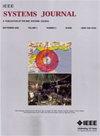Quantum Reinforcement Learning for QoS-Aware Real-Time Job Scheduling in Cloud Systems
IF 4.4
3区 计算机科学
Q1 COMPUTER SCIENCE, INFORMATION SYSTEMS
引用次数: 0
Abstract
Effective cloud job scheduling is essential for enhancing the performance and operational efficiency of cloud-based services, directly impacting their quality of service (QoS). Among existing methodologies, deep reinforcement learning (DRL) has proven effective in addressing complex, multidimensional optimization challenges in real-time scheduling. With advancements in quantum computing, quantum neural networks (QNNs) are showing unique advantages in information representation and processing. This study is the first to explore quantum reinforcement learning (QRL) for real-time job scheduling in cloud systems. Specifically, we propose a QRL framework that utilizes variational and encoding layers to convert state information into quantum data, repeatedly embedded into a QNN to compute optimal value returns. This approach aims to enhance QoS by improving job execution success rates and reducing average response times with unpredictable job arrivals. We present the detailed design of our approach, and our simulation results demonstrate that the QRL method significantly exceeds established baselines, including those based on DRL, across a range of workload intensities and computational resource configurations. This is particularly evident under high-load conditions, where our approach can achieve 55.2% higher success rates, underscoring its significant potential in cloud job scheduling optimization.云系统中qos感知实时作业调度的量子强化学习
有效的云作业调度对于提高基于云的服务的性能和运营效率至关重要,这将直接影响其服务质量(QoS)。在现有的方法中,深度强化学习(DRL)已被证明在解决实时调度中复杂的多维优化挑战方面是有效的。随着量子计算技术的发展,量子神经网络在信息表示和处理方面显示出独特的优势。这项研究首次探索了量子强化学习(QRL)在云系统中的实时作业调度。具体来说,我们提出了一个QRL框架,该框架利用变分层和编码层将状态信息转换为量子数据,反复嵌入到QNN中以计算最优值回报。这种方法旨在通过提高作业执行成功率和减少不可预测的作业到达的平均响应时间来增强QoS。我们介绍了我们的方法的详细设计,我们的模拟结果表明,QRL方法在一系列工作负载强度和计算资源配置中显著超过了既定的基线,包括那些基于DRL的基线。这在高负载条件下尤为明显,我们的方法可以实现55.2%的高成功率,强调了其在云作业调度优化中的巨大潜力。
本文章由计算机程序翻译,如有差异,请以英文原文为准。
求助全文
约1分钟内获得全文
求助全文
来源期刊

IEEE Systems Journal
工程技术-电信学
CiteScore
9.80
自引率
6.80%
发文量
572
审稿时长
4.9 months
期刊介绍:
This publication provides a systems-level, focused forum for application-oriented manuscripts that address complex systems and system-of-systems of national and global significance. It intends to encourage and facilitate cooperation and interaction among IEEE Societies with systems-level and systems engineering interest, and to attract non-IEEE contributors and readers from around the globe. Our IEEE Systems Council job is to address issues in new ways that are not solvable in the domains of the existing IEEE or other societies or global organizations. These problems do not fit within traditional hierarchical boundaries. For example, disaster response such as that triggered by Hurricane Katrina, tsunamis, or current volcanic eruptions is not solvable by pure engineering solutions. We need to think about changing and enlarging the paradigm to include systems issues.
 求助内容:
求助内容: 应助结果提醒方式:
应助结果提醒方式:


